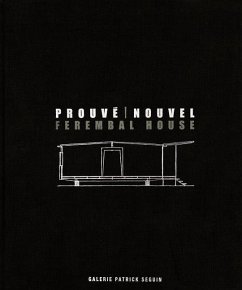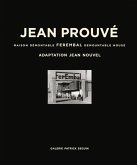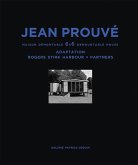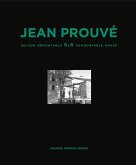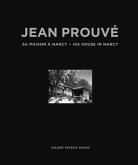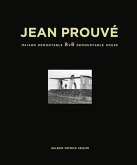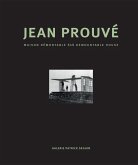Jean Prouvé's Ferembal House was built in Nancy, France, in 1948, as the office for a can factory. Composed of five axial frames clad with wooden panels, set on a tall masonry base and occupying less than 600 square feet in a single raised story, this prefabricated structure was a classic example of Prouvé's advocacy of mobile architecture. Thirty years later, however, the company went out of business and the factory was demolished. Fortunately a Nancy resident had the wherewithal to dismantle and preserve Prouvé's innovative building, putting it into storage. In 1991, the well-known Parisian design gallerist Patrick Seguin traveled to Nancy to locate the Ferembal House. Seguin spent the next ten years raising the funds to renovate it, working in tandem with Prouvé experts, and in 2007 invited his longstanding friend, the architect Jean Nouvel, to undertake a creative adaptation of the House. Drawing on contemporary technical resources, Nouvel brilliantly extended and systematized its fundamental modularity with stackable Ductal blocks and a floor of removable slabs. The results were exhibited in the Tuileries Gardens in Paris, in 2010. This comprehensive account of Prouvé's posthumous collaboration with Nouvel recounts the tale of the Ferembal House with archival photographs and plans of the original structure and a detailed account of Nouvel's inspired interventions.
Hinweis: Dieser Artikel kann nur an eine deutsche Lieferadresse ausgeliefert werden.
Hinweis: Dieser Artikel kann nur an eine deutsche Lieferadresse ausgeliefert werden.

